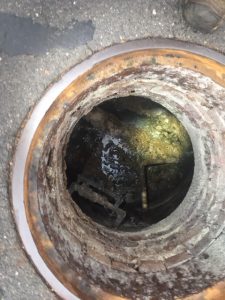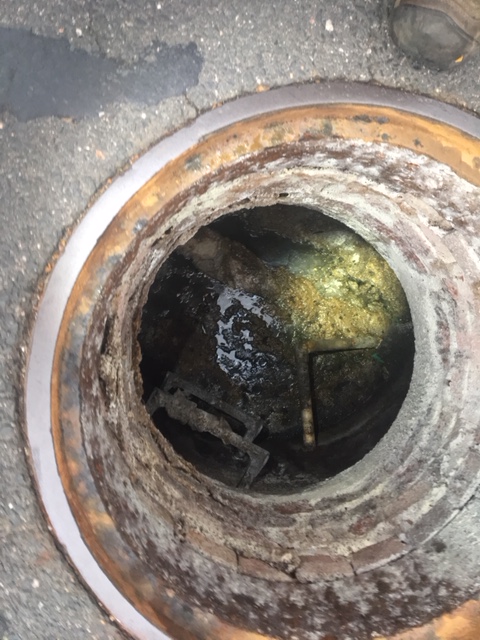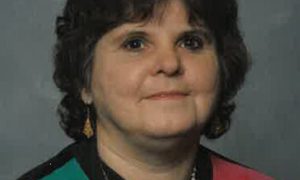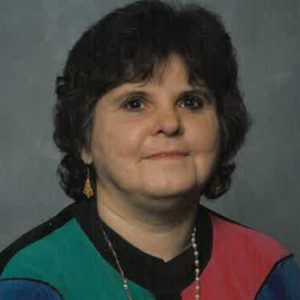
Southwick DPW workers took a picture of the grease blockage that was in a sewer near the southern part of Berkshire Ave. (Photo courtesy of Southwick DPW)
SOUTHWICK – Two town of Southwick officials are attempting to figure out a grease problem that has recently emerged in a sewer system in town.
According to DPW Director Randy Brown, members of the DPW were out near the southern part of Berkshire Ave about a month ago, doing a different task when they discovered that there was a grease blockage in that sewer line.
“Luckily, we were able to locate it and clean it out, but if there was ever a complete blockage it could impact all of the customers that are up stream,” said Brown.
That particular sewer line involves the Southern section of Berkshire Ave and the neighborhoods surrounding South Pond on Congamond Lake. Brown said up to 200 sewer customers would be effected if the grease became more of an issue.
A year prior to this incident, workers went out at that same location and actually checked the sewers for grease and found no signs of it.
“Something happened during that time period,” said Brown.
Board of Health Director Tom FitzGerald has been working with Brown to determine where the issue is originating. FitzGerald is in the process of sending out emails to the 20 or more restaurants throughout Southwick that are hooked up to sewers. The email will also include the school district, since they are also hooked up to a sewer system on Feeding Hills Road.
FitzGerald said that the notification will focus on reminding businesses about compliance with the grease regulations that were adopted by the Town of Southwick in 2009. In the regulation it states, “All commercial businesses that have licenses issued by the Board of Health for the purposes of preparing and/or serving food, shall be required to have a grease trap sized by the agent sized by plumbing or other applicable codes.”
The regulations then go on to say that if any establishment fails to comply with installing or pumping grease traps, they could have their food license revoked by the Board of Health.
FitzGerald certainly doesn’t prefer to take such an action but it could be necessary in order to prevent a small problem from getting worse.
“We don’t want excessive grease in the sewers,” said FitzGerald.
After the notice goes to all the food establishments that are connected to sewers, he and Brown will be creating a comprehensive plan on how to deal with grease traps properly and set up a plan to become aware of the routine maintenance that’s required for the restaurants.
The Board of Health will also be discussing this at their next meeting on January 24.








